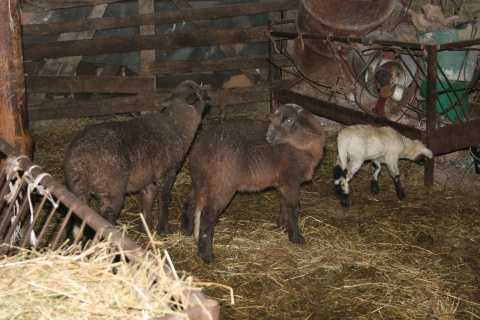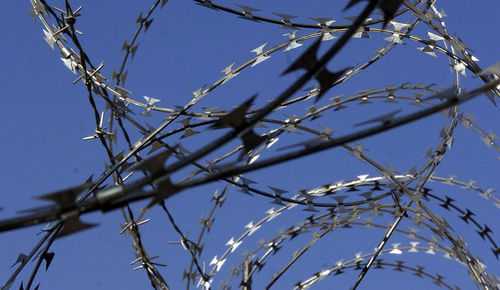Turkey is planning to build a nuclear power station at İğneada, a small town close to the Bulgarian border on the Black Sea coast. No official Bulgarian reaction has yet been recorded, but Internet forums were overwhelmed with alarmed messages regarding the possible consequences of the decision.
Background
Turkey is criss-crossed by fault lines, and small and medium-sized earthquakes are a near daily occurrence. Two large quakes in 1999 killed more than 20,000 people.
The government says Turkey must diversify its energy mix and boost supply to keep up with soaring demand amid rapid economic growth. It is aiming to generate 20% of its power from nuclear sources by 2030.
During a visit to Moscow last month, Turkish Prime Minister Recep Tayyip Erdoğan Erdogan said construction on a plant might start in April.
More on this topic
News:Oettinger pushes for stress tests of Europe’s nuclear plants
İğneada, which lies on the Black Sea coast in the region of Thrace, is the safest location for the plant in terms of earthquake resistance, Turkish officials said, according to a report in Turkish newspaper Hürriyet on Wednesday (6 April).
A nuclear plant at İğneada would be the third such project recently announced by Turkey. Ankara has already approved plans to build two nuclear plants, one in Akkuyu on the Mediterranean and another one at Sinop, on the northern edge of Turkey’s Black Sea coast.
Turkey concluded a deal with Russia to build Turkey’s first nuclear plant in Akkuyu. The total capacity of the nuclear power plants to be built in Akkuyu and Sinop is expected to be nearly 10,000 megawatts. The second nuclear plant will reportedly be developed by Tokyo Electric Power Co. (TEPCO) and Toshiba. TEPCO gained notoriety after the recent disaster at its Fukushima plant, the Turkish press reports.
Turkey intends to build three nuclear power plants with a total power generation capacity of 15,000 megawatts by 2023, the officials said.
The site planned for the Mediterranean nuclear station is only a couple of dozen miles away from a fault line which geologists fear is in danger of sliding at any time, Hayrettin Kilic, a nuclear physicist who campaigns against atomic power, is quoted by Reuters as saying.
“There are a few proper places for the third nuclear power plant. İğneada seems to be the best one,” unnamed officials are quoted as saying.
Turkish Energy Minister Taner Yıldız said no official decision had been taken regarding the location of a third nuclear plant.
“We said our extensive 2023 vision also includes a third nuclear plant. This idea still exists but our main aim is now to conclude negotiations of the first two plants,” Yıldız said.
According to the Dnevnik daily, EurActiv’s partner in Bulgaria, the planned Turkish plant is located 15km from Rezovo, a village situated on the Bulgarian side of the Black Sea, near the Turkish border.
At the time of publication, 375 readers had commented on Dnevnik’s article, voicing concerns about the environmental risks of building a nuclear plant there.
Bulgaria has a 300km-long Black Sea coast, which hosts a myriad of booming tourist resorts. Many posted comments related to concerns that the project will scare tourists away from Bulgaria. Some readers insisted that Sofia should block Turkey’s EU bid in retaliation.
Bulgaria has one nuclear power plant, at Kozloduy on the Danube river, and has started building a second one at Belene, also on the river, which constitutes a natural border with Romania. Work at Belene was frozen after the Fukushima disaster pending further security assurances from Russian developer Rosatom.
In Brussels, the European Commission admitted it could not prevent countries from building nuclear power stations in border regions, but highlighted the importance of the “stress tests” which the EU is aiming to put in place to improve nuclear safety after Fukushima.
“That’s why we would like to include Turkey and other countries when we develop stress tests,” said Marlene Holzner, spokesperson for Energy Commissioner Guenter Oettinger.
Such consultations were seen as useful when discussing plans for new nuclear power plants. It was easier to take measures to comply with the requirements of stress tests than to upgrade such facilities, she added.
Positions
Turkey should abandon plans to build nuclear power plants, because its proximity to geological fault lines means it could face a nuclear crisis like the one in Japan, Greenpeace said.
“It is a mistake to go nuclear after what has happened in Japan,” Uygar Ozesmi, Greenpeace’s Mediterranean director, said at a news conference. “In a quake-prone country like Turkey, you cannot launch a nuclear power industry.”
“Regardless of the dangers of an earthquake, nuclear technology itself is the main risk,” Ozesmi said. “Whatever generation you use requires a cooling system, and when we look at any major nuclear incident, the cooling system is at fault.”
via Bulgarians irked at Turkey’s nuclear power plan | EurActiv.





